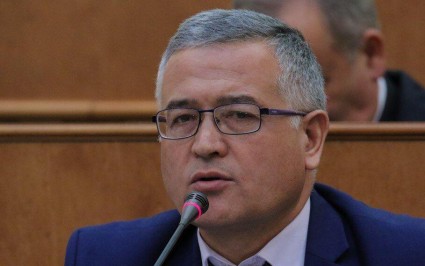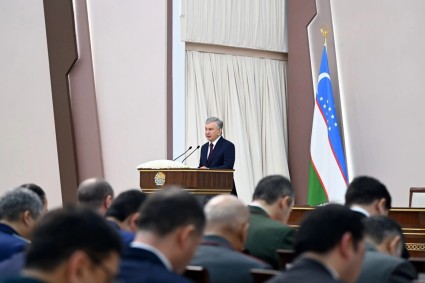Today, ombudspersons representing five Central Asian governments signed two agreements intended to facilitate the protection of human rights in Central Asia. The agreements, which were supported by the U.S. Agency for International Development (USAID), were signed at an international forum in Tashkent. The forum, “Cooperation of the Central Asian Ombudspersons in Ensuring Human Rights and Freedoms” was organized by the Government of Uzbekistan’s Office of the Authorized Person of the Oliy Majlis for Human Rights (Ombudsman) with assistance from USAID.
The Tashkent Declaration on human rights, reaffirms the commitment of Uzbekistan, Kazakhstan, Kyrgyzstan, Tajikistan, and Turkmenistan to protect human rights, take measures to prevent torture, and raise the legal awareness of human rights for the region’s citizens. The ombudspersons also signed a memorandum of cooperation intended to facilitate international cooperation and the sustained exchange of experience on the subject of human rights.
Respect for, and protection of, fundamental human rights is a central goal of U.S. foreign policy. Speaking at the event, USAID’s Mission Director in Uzbekistan Mikaela Meredith said, “USAID is proud to support today’s forum. The signing of the Tashkent Declaration on human rights will provide an impetus for future action to promote human rights. When backed by action, it will demonstrate that the signatories are committed to building upon our shared progress upholding human rights and freedoms.”
The forum brought together ombudspersons from the five Central Asian countries, as well as 150 representatives of state and international organizations, and civil society. The forum, and the agreements, will strengthen cooperation between the region’s ombudspersons. The forum also served as an international platform for discussions on how best to improve mechanisms for protecting human rights in the Central Asian region.
USAID has been a longtime supporter of the Ombudsperson’s Office in Uzbekistan, including by assisting in the development of draft law which will expand the institution’s powers to operate independently. USAID also provided ICT equipment that allows the Ombudsperson’s Office to reach and serve citizens throughout the country. The Ombudsperson’s Office works with the Chamber of Advocates, and national NGOs, to make justice more accessible for every citizen, a public/civil society partnership facilitated by USAID.















